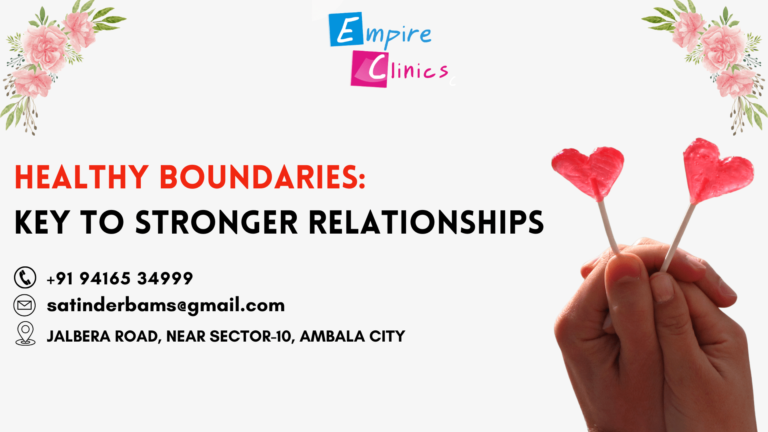Healthy boundaries are essential to maintaining a strong, happy relationship. They allow each person to feel safe, respected and valued. In this guide, we’ll explore what healthy boundaries mean in relationships, why they’re important, and how to set them in a positive way.
1. What are healthy boundaries in relationships?
Healthy boundaries are the boundaries we set for each other in a relationship. They help each person feel respected by ensuring that everyone’s needs and comfort levels are recognized. These boundaries can cover physical space, emotional sharing, time commitments, and more. In a healthy relationship, boundaries aren’t about control—they’re about building trust and respect.
2. Why are boundaries important in relationships?
Boundaries help create a balanced relationship where each person feels valued and free to be themselves. Here’s why they’re so important:
- Build trust: When boundaries are respected, trust grows as each partner feels heard and valued.
- Encourage Independence: Boundaries allow both partners to have personal time, hobbies, and friendships outside of the relationship.
- Reduce conflict: Boundaries set clear expectations, helping to avoid misunderstandings and arguments.
3. Examples of healthy boundaries
Setting healthy boundaries may look different for each person, but here are some examples that can benefit any relationship:
- Personal Space: Respect each other’s need for time alone or time spent with friends and family.
- Communication Needs: Discuss how often you will communicate when you are apart and set expectations for how you prefer to communicate (texts, calls, etc.).
- Emotional boundaries: Allow each other to feel and express emotions without fear of judgment or interruption.
- Privacy: Respect the other’s right to privacy, including keeping personal items, diaries or phones private if you wish.
4. How to set healthy boundaries in relationships
Setting boundaries can be difficult, but it’s a necessary skill for a healthy relationship. Here are some tips:
- Open Communication: Talk about boundaries early in the relationship. Use “I” statements such as “I feel most comfortable when…” to express your needs without blaming or criticizing.
- Be clear and specific: Explain your boundaries clearly so there is no confusion. For example, say, “I need some alone time after work to relax,” instead of “I need space.”
- Listen to your partner: Respect your partner’s boundaries as much as you want them to respect yours. Listening shows that you value their comfort and needs.
- Review boundaries regularly: Boundaries can change as relationships grow. Revisit and adjust as needed to keep the relationship healthy.
5. Signs of unhealthy boundaries
Unhealthy boundaries can lead to resentment, conflict, and even controlling behavior. Here are the signs to look out for:
- Ignoring boundaries: One partner ignores or does not respect the other’s boundaries, making them feel uncomfortable.
- Overdependence: Relying too much on each other for happiness or purpose can create imbalance.
- Controlling Behavior: If one partner tries to limit the other’s friendships, activities, or choices, it’s a sign of unhealthy boundaries.
6. Benefits of maintaining healthy boundaries
Healthy boundaries contribute to a more balanced, satisfying relationship. Here’s how:
- It promotes respect: Both partners feel respected and appreciated.
- Encourages Development: Boundaries create a supportive environment where both people can grow individually.
- It boosts confidence: By respecting boundaries, trust is strengthened, making the relationship more durable.
Have any question, Contact now
Get in touch now
Setting and respecting boundaries in relationships is key to long-term happiness and mutual respect. Healthy boundaries allow each partner to feel safe, valued and respected, laying the foundation for a supportive and loving relationship. By prioritizing open communication and respect, you can create a strong, balanced partnership that supports both people.
Final Thoughts
Remember, boundaries aren’t about creating distance – they’re about building a foundation of respect and trust. By recognizing and respecting each other’s boundaries, you can create a healthier, more fulfilling one relationship.
